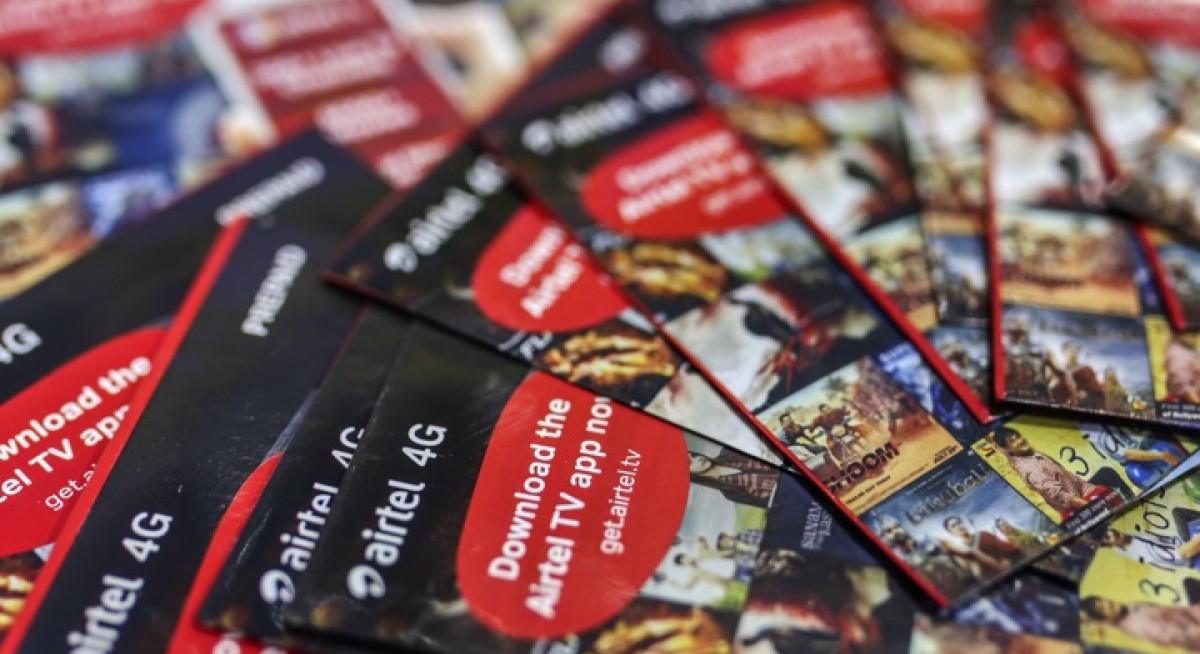Before the market opened on Thursday, Singtel announced 1Q earnings fell 35% to $541 million from a year ago, amid industry and economic headwinds. A FactSet consensus estimate had put the figure at $655 million for the quarter.
Singtel says the weaker bottomline was largely due to losses at Airtel in India, as well as higher depreciation and amortisation costs in network and spectrum across the group. Excluding Airtel, earnings would have fallen 3%.
Operating revenue rose 2%, in constant currency terms, to $4.11 billion due to growth in its digital businesses and its consumer business in Australia.
While regional associates continued to drive customer growth and data usage, Airtel in India saw higher network costs, depreciation and finance charges from its 4G network expansion.
In mitigation, Lang says measures like the reintroduction of prepaid minimum recharge packs, the reorganisation of Airtel’s post-paid plans and the launch a super app, have managed to win over new customers in India.
In fact, after two years of disruption, Singtel is still optimistic about Airtel which it says operates in a very competitive market.
“It depends on how each player will react as the industry continues to be capital-intensive like most telco businesses around the world. Having said that, if you look at the balance sheet of Airtel – with the rights issue and the IPO of its Africa business – Airtel has the strongest balance sheet among the three players,” says Lang.
Meanwhile, Singtel’s enterprise segment has been hit by macro economic factors including the US-China trade war as multinationals remain cautious with their investments. On the local front, Singtel is aware that small and medium enterprises would be the first to curb spending at the sign of a recession.
“There is certain impact with longer decision cycles and cutbacks. Therefore, we are bringing in great services that require less capital expenditure such as cloud-as-a-service,” says Bill Chang, chief executive officer, group enterprise.
Still, cyber security is one sector which the enterprise segment can depend on for growth with revenue forecast to increase by low teens, especially in the region.
“The cyber security business in Asia Pacific is growing ahead of the global market average growth of 4%,” says Chang.
On the Singapore consumer front, Singtel is also pleased with the traction of its GOMO plans which has a lower entry price resulting in a lower ARPU but address a segment who do not see Singtel as a service provider.
“It has a bit of the diluting affect on the overall ARPU,” admits Yuen Kuan Moon, chief executive officer, consumer Singapore, however, the cost of serving a GOMO customer is lower due to the digital nature of the plans, which do not require a call centre, retail shop or physical bill.
What about Singtel’s foray into e-sports last year? Singtel says the venture is neither generating revenue nor incurring significant costs.
“We have gotten very good sponsorships from the likes of Great Eastern, Huawei and Razer for the e-sports event. The e-sports focus has been picking up significantly and we are optimistic that there is a lot of potential in this space. For us, the e-sports business is to support a broader gaming initiative that we will be launching end of the year. In the mean time we are building the community and branding,” says Lang.
As for its stance on the 5G network rollout in Singapore, Singtel reiterates that a 5G network will need sufficient spectrum and must be superior to the current 4G network.
“You do not want to build a network with very little differentiation to the 4G network. If you roll out a network and the consumer cannot see or feel the difference, then what’s the point of rolling out a 5G network? That’s one of the key situation we have explained in our comments to the 5G network consultation paper,” says Yuen.
Singtel is sticking to its commitment of 17.5 cents dividend, barring unforeseen circumstances.
As at 12.27pm, shares in Singtel are down 4 cents at $3.25 with nearly 9 million units traded.



